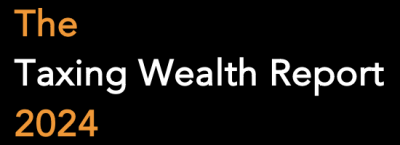Background
The Taxing Wealth Report 2024 recognises that the council tax system used in England (of which variations are in use in Wales and Scotland, but not Northern Ireland) was always a hasty compromise when it was introduced in 1993, and that nothing has improved it since then.
For one pragmatic reason, however, it is not suggested that major reform of this tax take place as part of the whole package of reforms suggested in the Taxing Wealth Report 2024. That pragmatic reason is that there are many better ways of transforming the tax system as a whole to tackle the inequalities created by wealth in the UK than by expending a great deal of effort to totally redesign or even replace any of the variants on council tax now in use. If the goal of those seeking to reform the UK tax system is to tackle the issue of wealth inequality in a systemic fashion then complete council tax reform has to come a long way down the list of potential reforms, even though the tax as it currently stands is very far from ideal.
Issues to be addressed regarding Council Tax
That said, there is much that can be done within the parameters of the existing council tax in England (many of which are likely to be of some relevance elsewhere) and this note proposes that if the goal is to more appropriately tax high and low-value properties, and in the process reduce the regressive nature of this tax, then this will require:
- Property revaluations.
- Increasing the number of bands used for property valuation.
- Changing the ratio of tax charged between top and bottom bands of council tax.
- Changing the exemptions available to those on benefits.
- Changing the treatment of second properties.
- Changing the treatment of vacant properties.
- Using central government grant-giving mechanisms to provide more support for local authorities in poorer areas whose revenues will fall as a result of these proposals.
The result could be a considerably fairer tax than we have at present, although that outcome would still not be an optimal solution, which would have to wait for attention when more of the issues tackled in the Taxing Wealth Report 2024 have been addressed.
Revenue consequences of proposed reforms
It is important to note that it is very unlikely that any of these proposals, which should ideally be seen as a package as a whole, would raise additional tax revenues. There is very little scope to do that within the existing structure of this tax, not least because the number of high-value properties that are undertaxed at present is quite small, and any proceeds from taxing them more appropriately should be used to reduce charges elsewhere across the tax bands. The aim should be to create a fairer tax, and that is what this package of reforms is meant to deliver.
Future work
The Taxing Wealth Report 2024 has deliberately looked at reforming existing taxes in the UK. It has not considered those that might need replacement. It could be argued that Council Tax is in need of replacement. That might be the subject of future consideration.
The reforms
The only proposals in this section are noted in this post:
- Council tax reforms are essential to increase the progressivity of local taxation.





